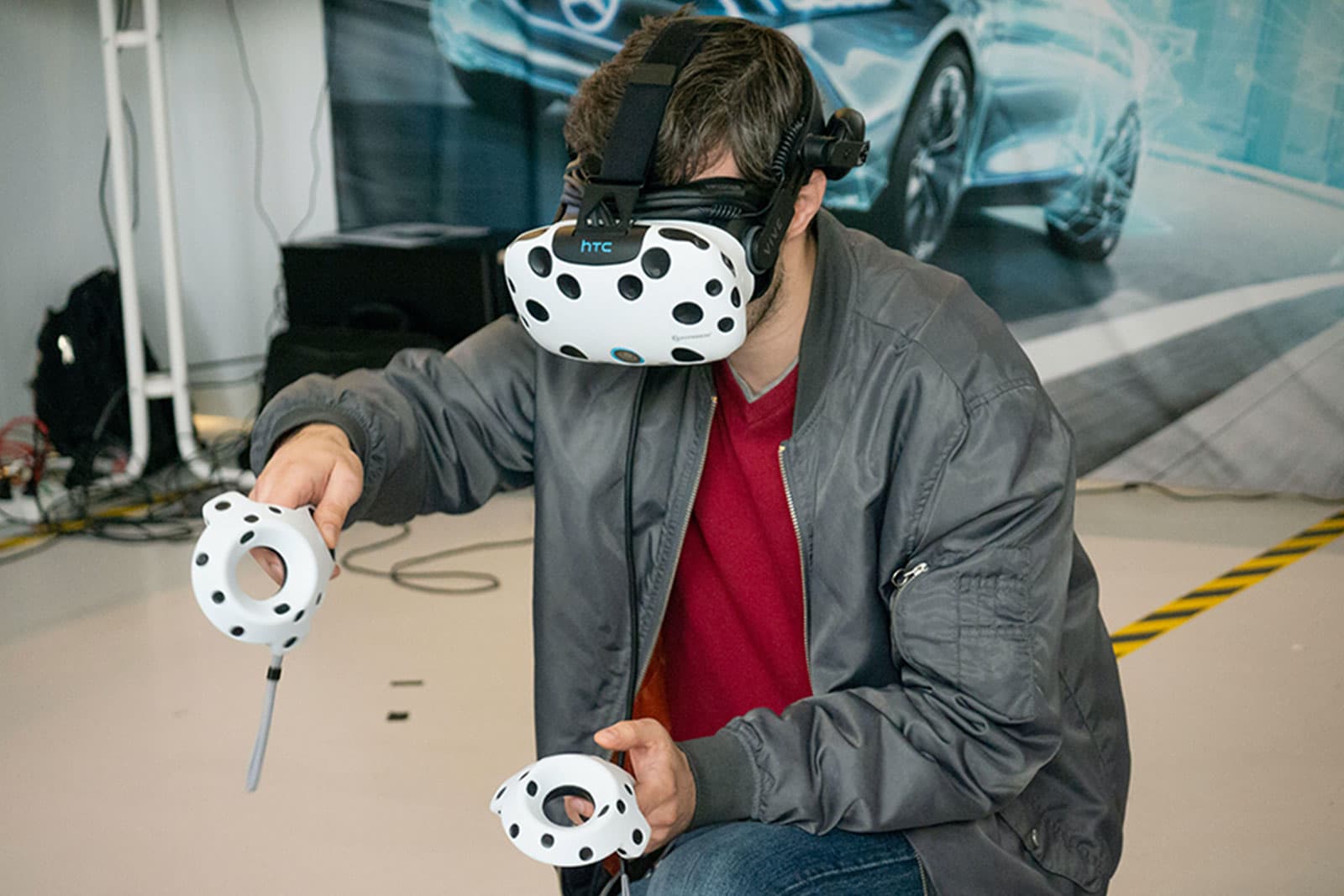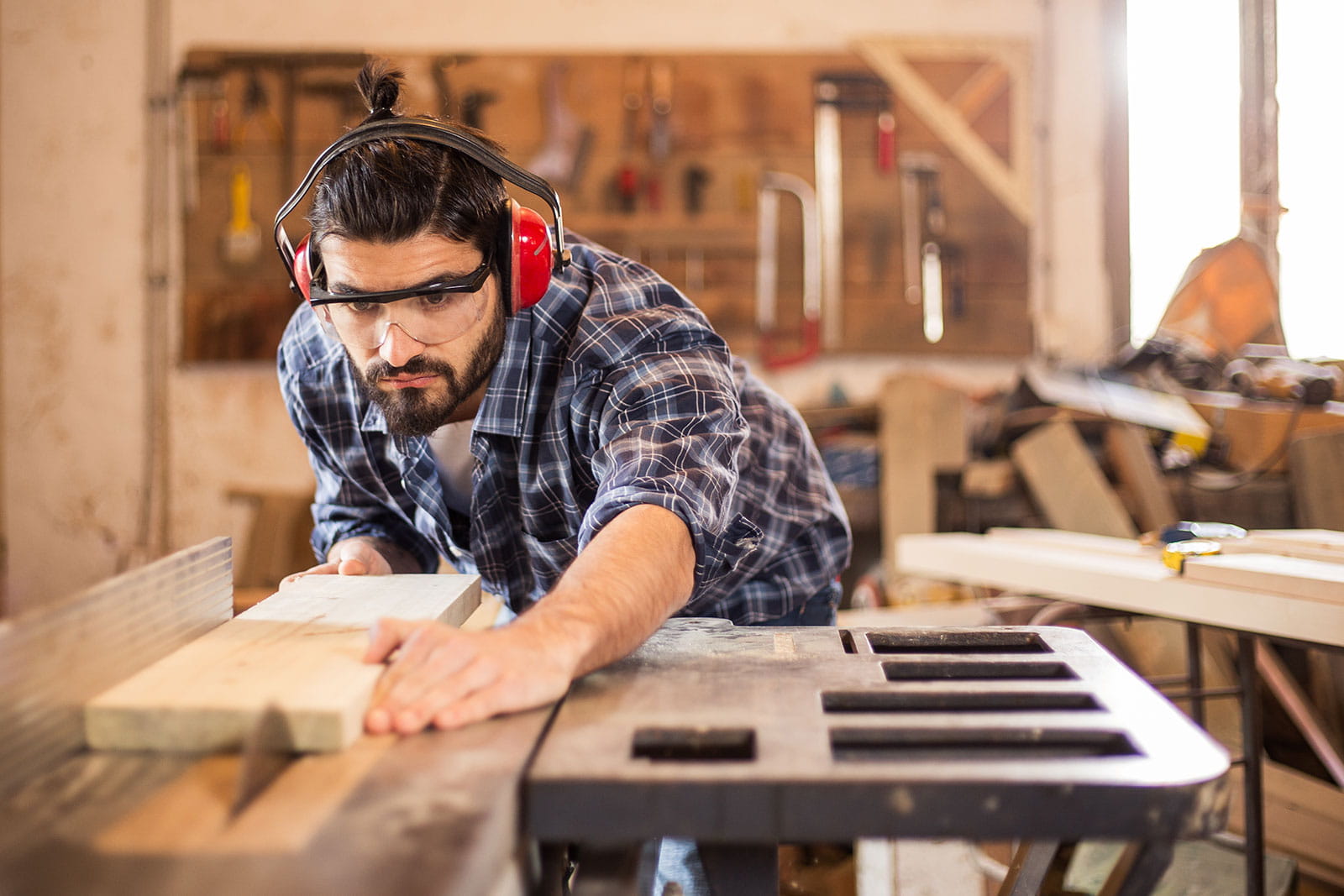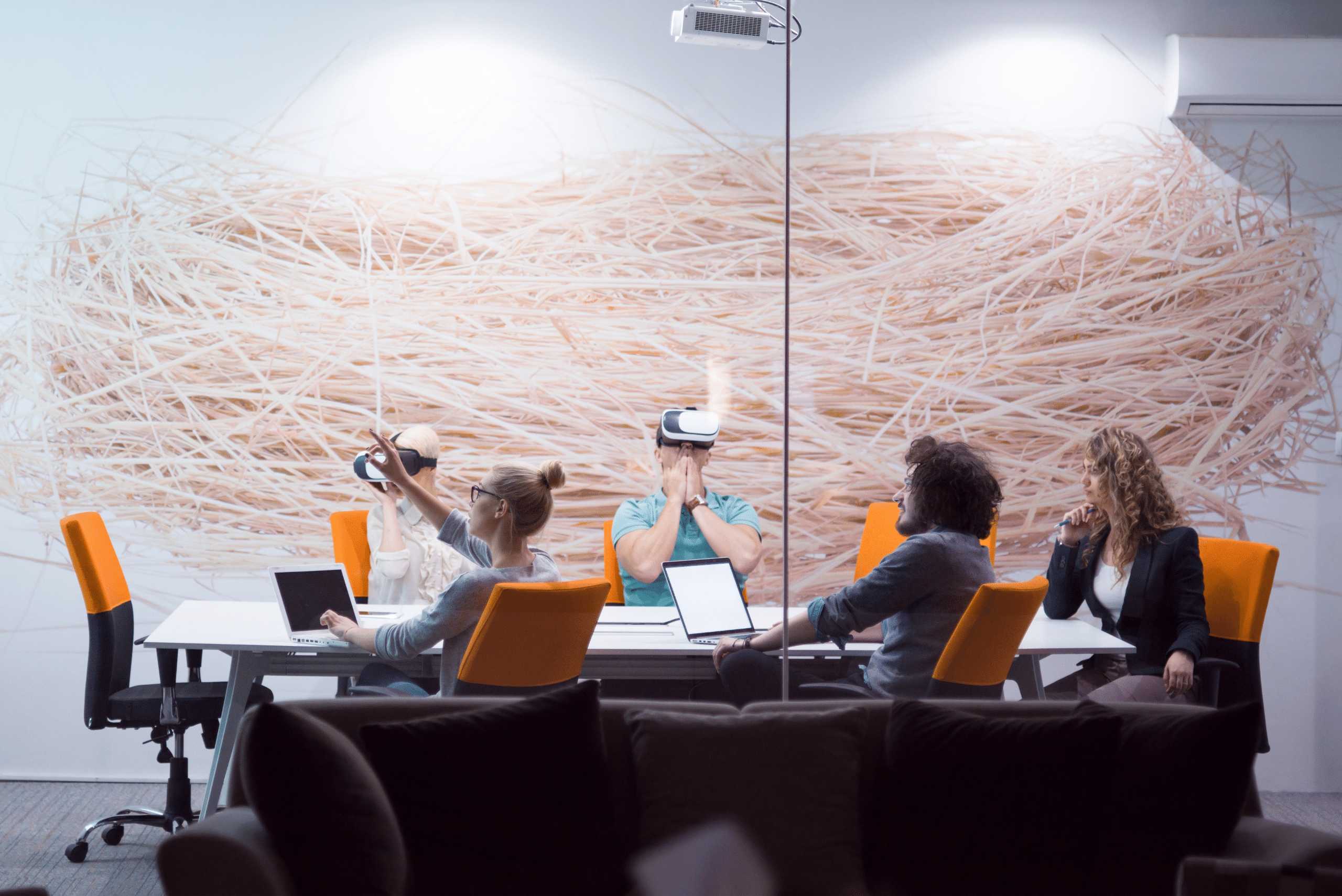
Virtual reality training is revolutionising the way people are trained in the health, construction and automotive industries.
From training workers in site risk prevention to training medical students in brain surgery, virtual reality offers unique opportunities to train professionals safely and effectively while significantly reducing training costs.
But there is one particular area of industry where VR offers multiple benefits: the profession of body painter.

Which virtual reality simulator should you choose for training in bodywork painting?
Simspray is clearly the most widely used virtual simulator for training students in bodywork painting.
Vehicle manufacturers and team leaders use this training tool to give their trainees the experience they need to land an apprenticeship contract, a diploma and ultimately a permanent or fixed-term contract.
More than just a simulator, Simspray is a genuine tool for analysing and sharing knowledge in the body painter trade.
What are the 10 benefits of VR simulators that are so popular with the automotive industry?
What are the 10 benefits of VR simulators that are so popular with the automotive industry?
As well as the huge cost advantage, the body paint simulator brings many benefits to automotive industry training programmes.
Let's take a closer look!Créé et développé par des experts de peinture industrielle, SimSpray a été créé dans le seul but de simplifier le processus de formation et fournir aux formateurs de pulvérisation industrielle des statistiques précises des performances de leurs élèves.

1- Lower training costs
When we talk about body painter training, we're talking about big budgets!
Parts, paint, premises and even the professionals to call on all add up to a hefty note.
With a virtual reality simulator, you can offer personalised, highly-qualified training experiences for a fraction of the cost.
It has been proven that with SimSpray, over 5 weeks of training with 40% usage, you can reduce your expenses by 50% and increase results by 35%.
You're already saving $1,000, from 5 students upwards! (Source)
2- Real-time assessment
Thanks to a virtual bodywork painting simulator, learning is simplified for both the student and the trainer.
The sensors on these tools make it possible to detect the apprentice's movements and faults.
The person in charge of training can therefore assess their trainees' skills in real time, without waiting for the paint to dry!
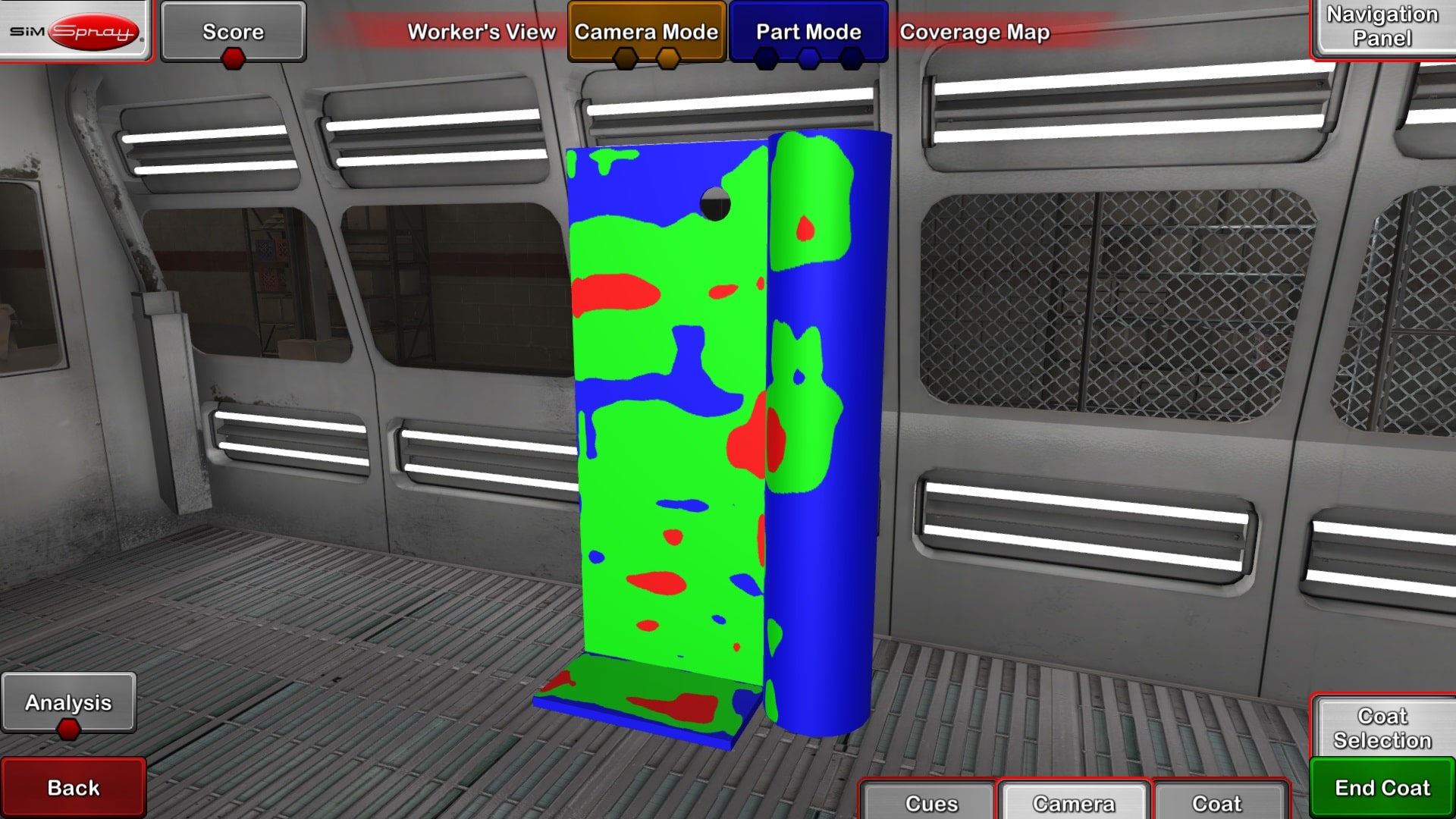
3- Green training
Among other things, this learning tool ensures proper use of resources and massively reduces waste.
Sustainable development and environmentally-friendly training practices. What more could you ask for!
4- Right to make mistakes
With traditional training, the number of parts is limited (3 parts per 12 students in automotive schools). So the student has no right to make a mistake, because he won't be able to start painting again for a while.
The VR simulator lets you repeat your movements and postures over and over again. That's right, there's no limit to the number of parts you can use in a virtual environment!
So students have the right to make mistakes and can learn from them.
For example, one of SimSpray's features is the ability to view the replay of a gesture so that it can be analysed and not repeated in the future.
A real advantage for learners' memory!
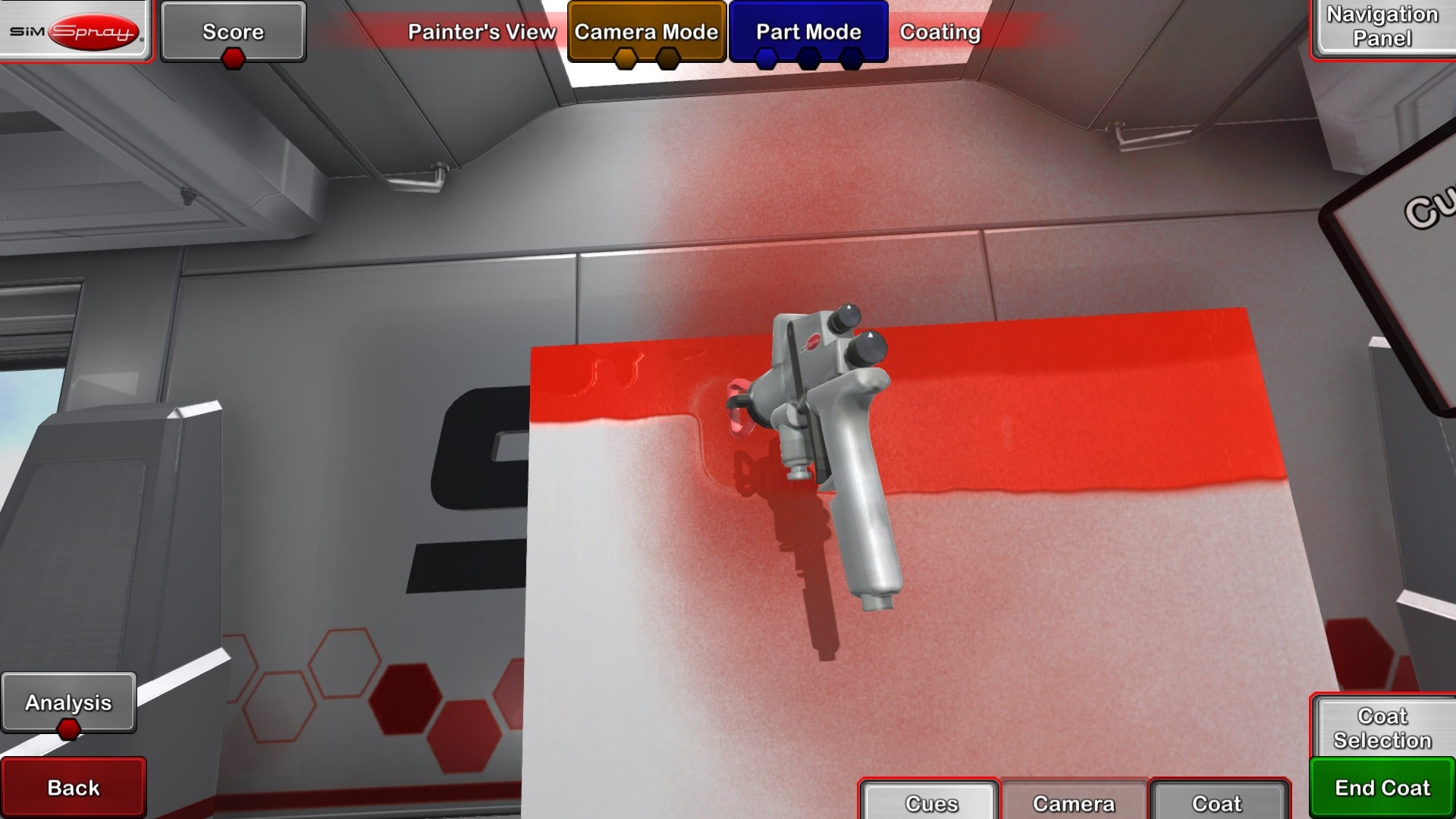
5- Peer to peer learning
With traditional training, it's difficult to get 30 people into a workshop to watch a student perform sandblasting.
With the VR simulator, the screen can be projected into the classroom so that all the apprentices can contribute.
You learn by watching!
6- Step-by-step guide
For example, they can be helped to learn how to manage the right distance, speed or angle.
The realistic visualisation of paint spraying is one of the most important features of the virtual training system.
It also allows you to simulate and feel the thickness of the paint, while helping students to understand what they are doing with aids projected directly into their virtual reality helmets!
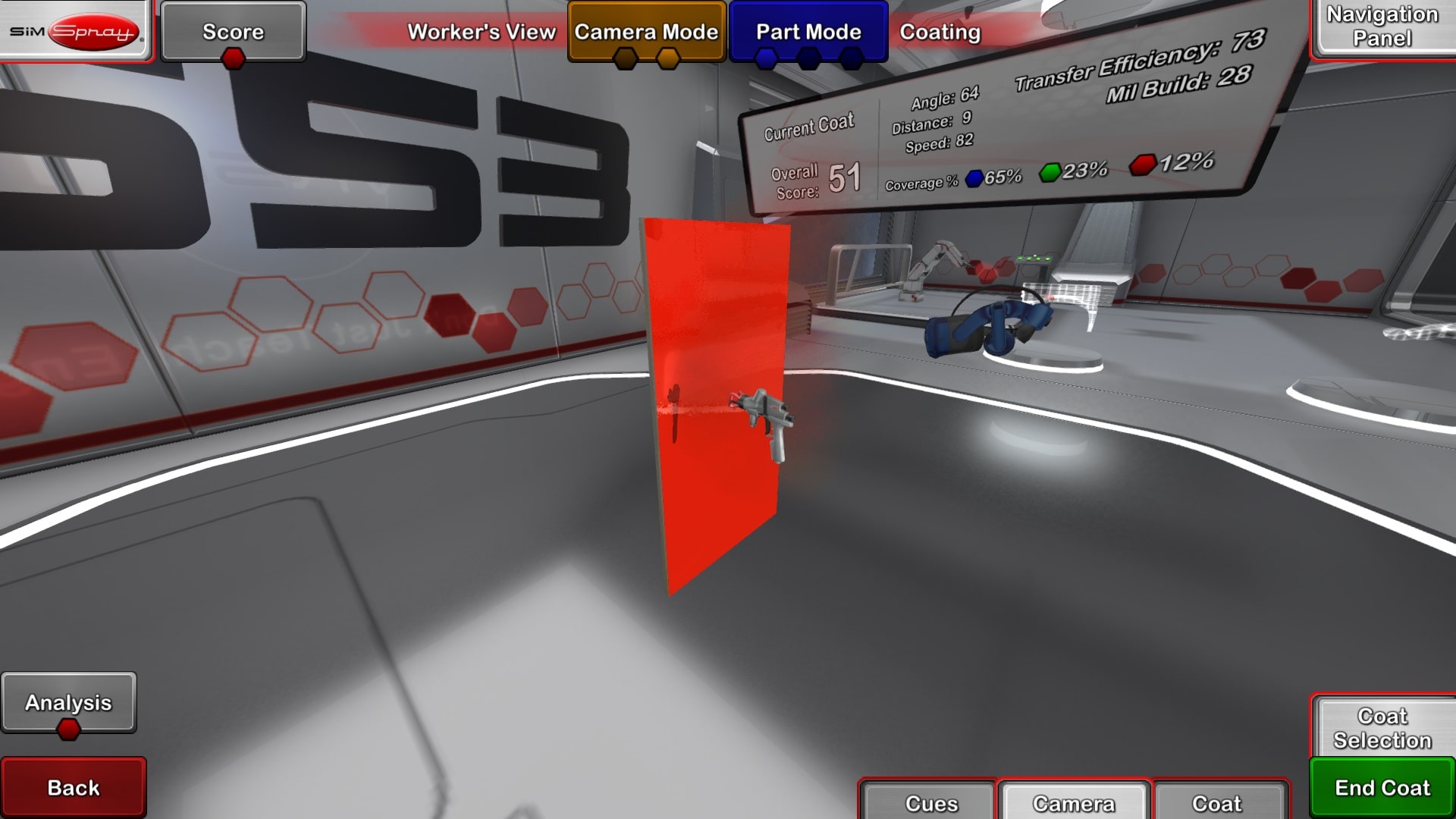
7- Infinite paint parts
As we said earlier, the advantage of a virtual simulator is that the parts to be painted are infinite.
In fact, there is often a shortage of parts to be painted available in the CFA, CCCA-BTP or automotive colleges.
There is generally an average of 3 parts for every 12 students.
With virtual reality, on average 12 parts can be painted in 20 minutes.
Which makes a big difference!
Here the learner can learn by repetition, which is the most beneficial in terms of long-term memory.
It's all very well to get a diploma, but it's worthless if you can't remember your training to deal with every situation in the field.
According to a study published by the University of California, virtual reality experiences create a potential knowledge retention rate of 90% among students.
That's 4 times the retention rate of traditional classroom training!
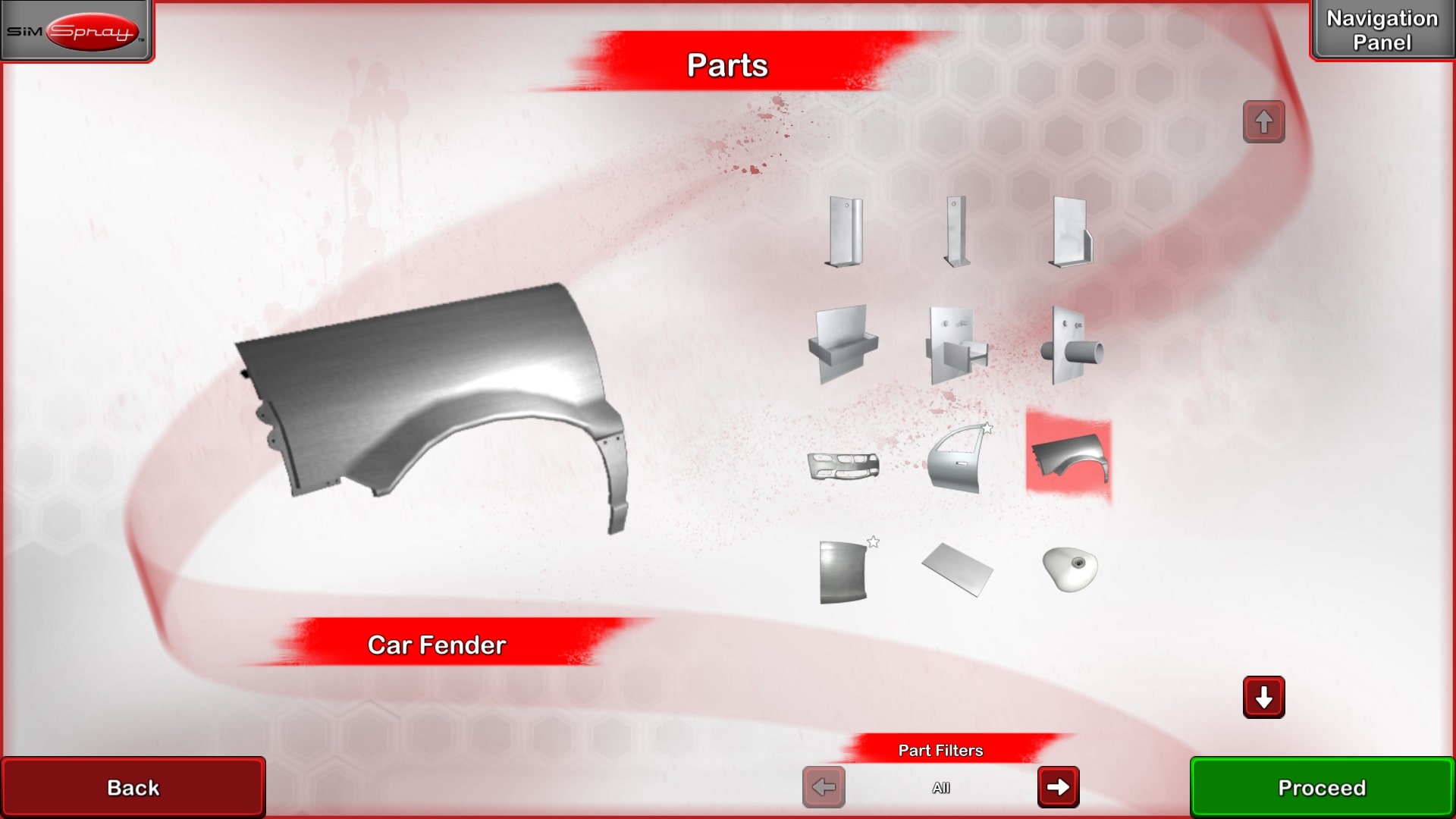
8- Choice of paint and unlimited quantities
The choice of paint is very limited in schools. Both in terms of colour variety and quantity.
Virtual reality makes this possible.
You have access to every possible colour, without spending a penny!
9- Safety first
No toxic fumes or dangerous installations for the learner.
Your trainees can concentrate on the technique in complete safety!
10- Analyse your ROI
Paintometer calculates the time spent painting, the paint/coating applied and wasted, and the number of parts painted.
You can keep an eye on absolutely everything!
As you can see, a virtual reality simulator has nothing but advantages when it comes to training to become a body painter.
And let's not forget that this immersive learning experience only requires a space of less than 10m²!
Which is considerably less than a real industrial paint shop.
At MIMBUS, we can help you purchase, install and train a VR industrial paint simulator to suit your needs.
Car manufacturers, shipbuilders, aerospace and aeronautics, we cover all sectors.
Don't hesitate to contact us and let's discuss your project together!
